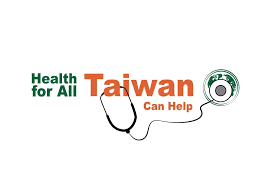Taiwan has been lauded globally for its response to the Covid-19 outbreak, from the performance of its public health and medical systems, to the use of technology and big data. But what comes after the crisis? And how do we begin to get our economy back on track?
“Taiwan mobilized early against Covid-19 with much success. Now we must turn crisis into opportunity, and mobilize for the development of our biotech industry post-crisis,” said Jerome Shen, General Partner and Head of Life Science Investments at Taiwania Capital, “our health system can mobilize NOW.”
The pandemic has spared no industry, Dr. Shen observed. For the health and biotech sector, the impact goes beyond the numbers to a whole host of adverse “butterfly effects.” For instance, most countries have closed their borders and focused their entire health systems on battling the virus. This will, directly and indirectly, impact new drugs and Medtech in development, which require years of clinical trials and massive data.
Major pharma companies have also begun in recent years to develop new drugs for emerging diseases like metabolic disorders and neurological pain, as well as treatments for cancer such as immunotherapies. If the clinical trials for these are suspended, the impact on patients and disease progression would be enormous, he warned.
At this crucial moment, Taiwan can help.
“The world has seen what Taiwan health system can do,” he observed. “Our medical and research communities and focused on different purpose-oriented clusters along with West Taiwan, has made Taiwan as a major destination for global pharma in new drug development and clinical trials.” Of course, this will also boost Taiwan’s human and technical capacity for new drug development, he said.
For its part, Taiwania Capital has invested in innovative pharma companies at home and abroad and worked to bring international projects to Taiwan for clinical studies. One example is the ongoing clinical trials for Remdesivir – an antiviral candidate to treat COVID-19. On March 19, Taiwan’s Central Epidemic Command Center (CECC) announced that three hospitals in Taiwan were involved in international clinical trials to enable early access to the treatment for patients here.
But our capacity to support international clinical trials goes far beyond this. According to the Taiwan Ministry of Health and Welfare, as of 2018, Taiwan has 128 GCP-certified teaching hospitals that are qualified for conducting clinical trials with credibility and quality. In August of the same year, the Taiwan Food and Drug Administration (TFDA) also announced “Enhancement measures for clinical trial protocol review process” to accelerate the development and commercialization of new drugs.
But above all, conquer we must as conquer we shall. The Covid-19 pandemic has not yet seemed to pass its peak. Dr. Shen added that startups at different stages have different funding needs, and Taiwania Capital has asked its portfolio companies to make the appropriate financial adjustments, plan for the next 12 months, and reserve the cash necessary for the economic changes to come.

